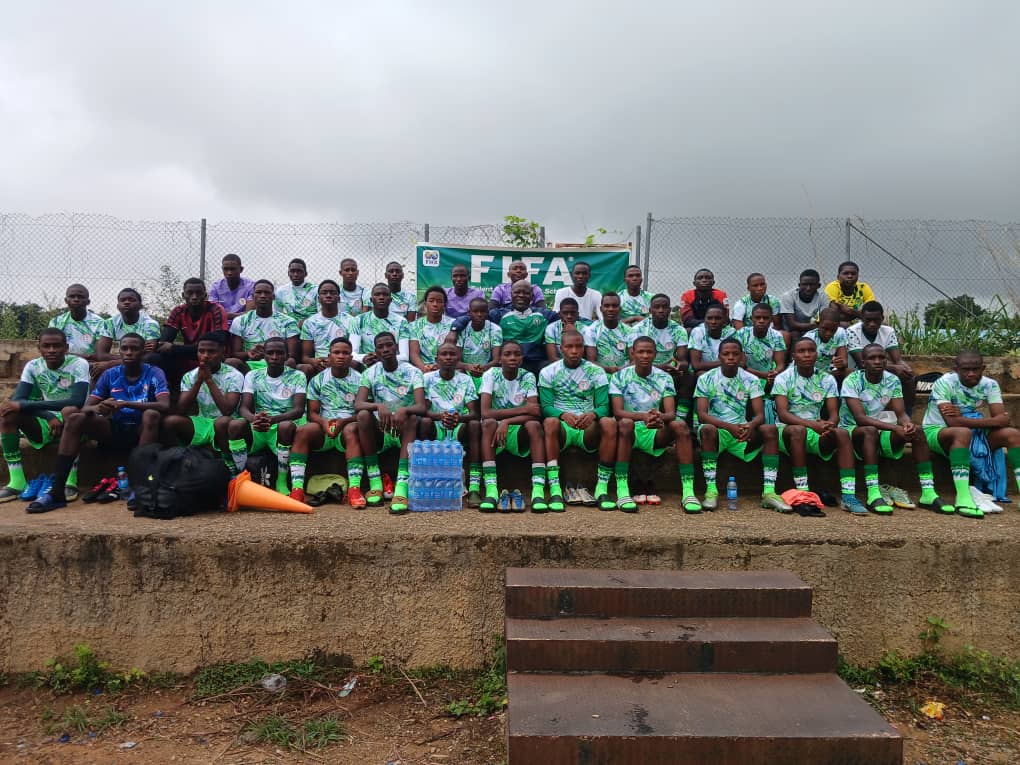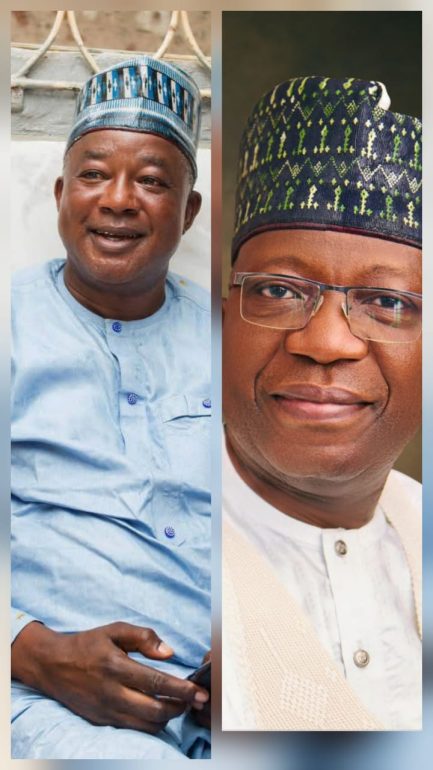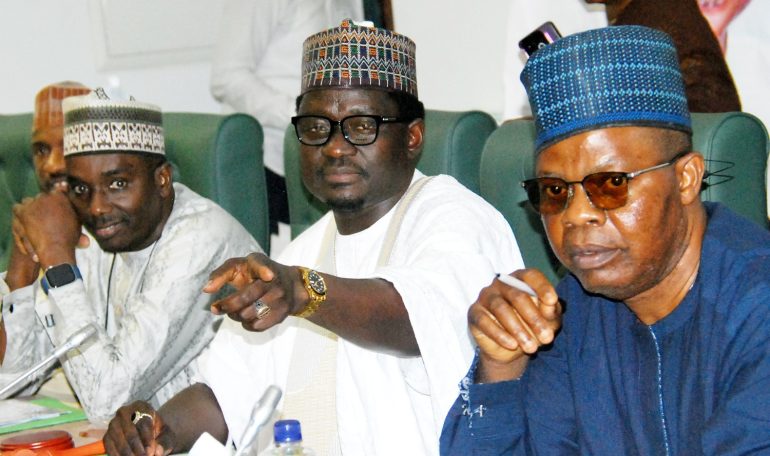Listeners:
Top listeners:
-
play_arrow
104.9FM Best rock music demo
-
play_arrow
Demo Radio Nr.1 For New Music And All The Hits!
-
play_arrow
Demo Radio Techno Top Music Radio
-
 play_arrow
play_arrow
Police Commissioner Launches Weapon and Riot Control Training for FCT Officers Democracy Radio
By Nonso Arinze
The third edition of the Talent Development Scheme (TDS), a joint football development initiative by FIFA and the Nigeria Football Federation (NFF), officially kicked off in Abuja.
Players arrived at camp on Monday, 30th June 2025, and the first training session was held the following day, Tuesday, 1st July.
National Coordinator and Technical Director of the program, Nasiru Jibril, expressed his delight with the turnout and enthusiasm. “Day one was really good. By yesterday night, we had about 39 players in camp, and then four more joined this morning. We started training with them,” he said.
Coach Patrick Bassey, Head Coach of the Future Eagles and the TDS program, praised the support of NFF President Alhaji Ibrahim Musa Gusau, who also serves as WAFU B President.
Bassey lauded Gusau’s commitment to grassroots football, noting that his collaboration with FIFA has elevated the program’s quality. “This third edition is already showing great promise. The players are the right age, carefully selected, and have what it takes to progress. I believe we are seeing future national team representatives,” Bassey remarked.
He further expressed satisfaction with the program’s expansion: “Before, it was one-sided. Now it’s spread across six geopolitical zones and 11 venues. I’ve faced many questions about how we select players.
This format answers those concerns—we’re now reaching talents from across the country.”
The Abuja camp is scheduled for two weeks. The first week is for newly invited players, while the second week will accommodate returning players, including those who participated in Morocco and others from previous camps.
A total of 36–37 players are expected in the second batch.
After the Abuja phase, the TDS will launch a nationwide scouting tour covering Nigeria’s six geopolitical zones. To ensure accessibility, five of the six zones will be divided into two subzones, while the Southeast zone will maintain a single location. The proposed zonal breakdown includes:
Northwest A: Kebbi, Sokoto, Zamfara (Proposed venue: Kebbi)
Northwest B: Kano, Katsina, Kaduna, Jigawa (Proposed venue: Jigawa)
North Central A: Plateau, Nasarawa, FCT, Benue (Proposed venue: Plateau)
North Central B: Kwara, Kogi, Niger (Proposed venue TBD)
South South A: Bayelsa, Rivers, Akwa Ibom (Proposed venue: Bayelsa)
South South B: Edo, Delta, Cross River (Proposed venue: Edo)
Southwest A: Lagos, Ogun, Oyo (Proposed venue: Oyo)
Southwest B: Osun, Ekiti, Ondo (Proposed venue: Osun)
Southeast: All southeastern states (Proposed venue: Enugu)
Following this scouting phase, each zone will form a representative team by selecting standout talents. These six zonal teams will later converge at a central venue for a national inter-zonal championship.
Kunle Tokode, a returning player, described his experience: “The camp’s been good. Everyone is putting in effort, and we’re gelling slowly. It’s similar to last year when I first came, but we’re doing well.”
He emphasized the difference between national and club-level training. “Playing for the national camp carries pride. Sometimes when you don’t want to run, you push through—because you’re running for your country. It brings more hunger.”
Another player, Yahaya Habeeb Adisa, also from the first batch, shared his enthusiasm. “Honestly, it’s been a good camp for me. I’m really proud of Nigeria for bringing this kind of program to help us develop. It’s a privilege playing in this junior future national team environment.”
Reflecting on the developmental aspect, Yahaya added: “Playing in this camp gives me more confidence, especially with the crowd. The intensity, mobility, and encouragement from the coaches are very different from club football. It’s helping me become more comfortable and better on the ball.”
Both players commended the TDS initiative and encouraged continued support. “It’s a great project that should be repeated. We need this consistency to return to our glory days in youth football,” Kunle stated.
Nasiru Jibril reiterated that the TDS is not a national team project but a developmental scheme. “It is about discovering and nurturing talent while building a database that helps prevent age cheating. Every time we bring in these boys, we discover very talented new players,” he explained.
Now in its third year, the TDS continues to grow in scope and impact, positioning itself as a cornerstone of Nigeria’s long-term football development strategy.
Written by: Democracy Radio
Similar posts
Copyright Democracy Radio -2024



